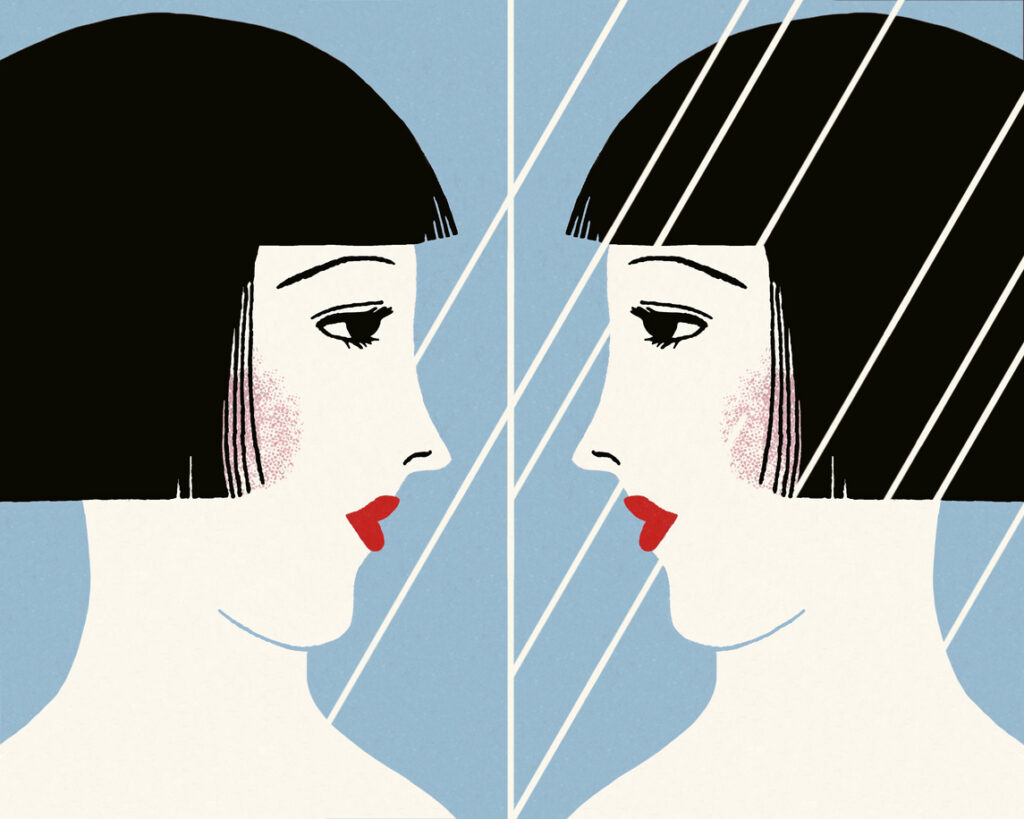Hafu: Navigating Japan’s Age Obsession as a “Half-Japanese” Woman
The Older You Get, The Less Desirable You Are?
Navigating Japan's complex standards around age can feel like a unique balancing act. In a society that cherishes youth and reveres tradition, each passing year brings quiet pressure, especially on women, to meet cultural expectations for appearance and behavior.
As usual, the disclaimer: In this article, I share my personal experiences navigating Japan’s age obsession as a hafu woman in her late 20s. For further context, please refer to my previous articles on being hafu in Japan and dating as a hafu.
Age is more than just a number in Japan—it’s a narrative. For someone like me, with a multifaceted cultural identity, these norms around aging add another layer to an already complex relationship with self-perception and acceptance.
The Christmas Cake Rule
 © Photo by iStock: nicoletaionescu
© Photo by iStock: nicoletaionescuLet’s start with the “Christmas cake rule” in Japan. While perhaps not a rule per se, it’s a well-known expression. For those unfamiliar, in the 1990s and 2000s, women were often expected to marry young. Those who remained unmarried past 25 were metaphorically referred to as “(unsold) Christmas cakes,” referencing items unsold after the 25th.
If a woman reached 26 without marrying, she was considered “too old.” The logic? Just as no one would buy a Christmas cake after December 25, society implied that no one wanted a woman over 25—both were seen as “left on the shelf,” so to speak. Charming, right?
Though this idea has fortunately faded, especially with Japan’s falling marriage and birth rates, I still occasionally hear the expression. I have friends and cousins who feel the pressure to find a partner as they age, often enduring match-making and blind dates, knowing others are watching.
The saddest part of the “Christmas cake” analogy is its targeting of women alone. While I’ve had family members and even distant acquaintances say things like, “You’re not getting any younger,” my male friends and family members face much less marriage pressure, in comparison.
Luckily, I let it go in one ear and out the other. Why should I listen to this nonsense? Am I “old goods” just because I’m in my late 20s and unmarried? It’s laughable, though still unpleasant to hear.
Taboo Topic Is It Not?
 © Photo by iStock: Dimensions
© Photo by iStock: DimensionsHaving lived in the UK for most of my life, I was taught that asking someone their age is considered very rude. So, I felt a certain shock upon returning to Japan, where people openly and, I might add, obsessively ask how old I am.
Japanese women don’t seem to ask each other as much. However, I remember when I was younger, experiencing jealousy and malicious comments from women as if my young age made me a competitor. Yet then, as now, it’s typically men who feel comfortable asking my age—and often in a not-so-pleasant, sleazy manner.
In fact, my reason for writing on this topic stems from recent personal experiences. Ones that have occurred a bit too often.
How old are you?
In bars or social settings, the first question is always, “Where are you from?”. They usually guess that I’m fully Western, which I’ve come to expect. The second question? “How old are you?” Before I even answer, they begin guessing. Once, two bartenders and a customer turned my age into a guessing game, with estimates hovering around the mid-30s.
When they found out I was half Japanese, the guesses suddenly dropped to the mid-20s. I was told it was because my “strong facial features,” “aura,” and “confidence” made them think I was older. Right. So, apparently, not being shy, acting “cute,” or looking fully Japanese equates to “looking old.” I was left speechless.
I told my Japanese friend about this incident, and she was appalled. She was shocked at how rude they were and said that it wasn’t normal for men to start guessing a woman’s age in Japan. She shared that she’d never experienced anything similar and that men wouldn’t dare try to guess her age, especially as I was clearly showing discomfort. I also confided in my Japanese mother. She told me that she was rarely asked about her age because people understand it’s considered impolite.
She emphasized that in Japan, asking a woman her age is often avoided due to cultural sensitivities around age and youth. This led me to wonder… is it because I’m not fully Japanese that men feel more comfortable openly asking my age, despite it being rude?
Hierarchy & Formality
 © Photo by iStock: JohnnyGreig
© Photo by iStock: JohnnyGreigWhile I find age to be a clearly taboo topic, it does play a significant role in hierarchy and formality in Japanese culture.
A half-Japanese friend of mine shared her experience with me. She had the opposite issue to me: a group of younger men assumed she was younger than she was. They spoke to her casually, even somewhat condescendingly—until they realized she was actually much older than they had thought. After that, they made much more of an effort to speak respectfully. Even so, she admitted that this sudden switch made her feel very uncomfortable.
Another half-Japanese friend shared his experience on the topic. He had a humorous encounter when he joined a new company, where his coworkers initially thought he was much older. They, at first, spoke to him using keigo (formal Japanese). Once they discovered he was actually younger, their language and attitude instantly changed, and they stopped using keigo with him. He found it amusing that their entire attitude shifted purely based on age. He mentioned it should feel natural to be polite regardless of age—something I completely agree with.
Overcoming Societal Pressure Around Age
 © Photo by iStock: CSA-Printstock
© Photo by iStock: CSA-PrintstockAs I grow older, I’m finding ways to reframe the notion of age as it applies to my life and identity as a hafu woman in Japan. I’ve learned to see the questions, the guesses and the judgments as reflections of the culture rather than personal criticisms.
Societal expectations will always exist, but they don’t have to define who I am or where I should be in life. Embracing my identity means resisting the urge to conform to these pressures and instead focusing on my own goals, values and well-being.
Aging is inevitable, and I’d rather spend it feeling content and empowered in my choices than meeting someone else’s timeline. Japan’s age norms may shape the world around me, but they don’t control my narrative.
What do you think about Japan’s age obsession? Comment below!












Leave a Reply